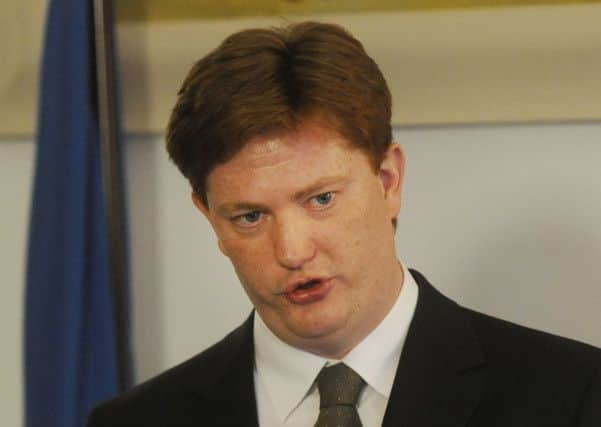Danny Alexander: Currency union support has melted


On the most fundamental question about Scottish independence – the currency – his proposal for a currency union between Scotland and the rest of the UK is looking increasingly bereft of support. Over the past few months, the few friends this idea once had have slipped away as reality has dawned.
There are now no credible voices left in support. It is only the out-of-touch Edinburgh elite who cling to the false idea that a currency union would be possible.
Advertisement
Hide AdAdvertisement
Hide AdLast week the British Chambers of Commerce published a survey showing that the vast majority of businesses want Scotland to remain part of the UK, and only 35 per cent believe a formal currency union would work. Then last week the National Institute for Economic and Social Research published a report saying that a currency union would not work, and instead favour Scotland using sterling without any say over key decisions such as interest rates. And then on Wednesday the economist John Kay, a former adviser to Alex Salmond, reasserted his view that he does not think a currency union could ever be agreed.
There are five key reasons why it would not work.
First, the difference in size between the economies of Scotland and the rest of the UK makes this a completely one-sided deal. The economy of the continuing UK would be ten times the size of the Scottish economy after independence. So while UK’s taxpayers might have to bail out the Scottish Government, the reverse would not be remotely possible.
Second, because the banking sector is proportionally so much bigger in Scotland than in the rest of the UK, the financial sector risks between Scotland and the rest of the UK are hugely imbalanced. This means that a currency union could only work alongside a banking union, yet there are no workable proposals from the SNP as to how such a banking union would work.
Third, a banking union would not work without a fiscal union. And with a fiscal union an independent Scotland wouldn’t be able to decide for itself how to raise and spend money.
Fourth, currency unions never work without cast-iron assurances that they are forever. Given that the Scottish Government white paper on independence says that it would “be open to people in Scotland to choose a different arrangement in the future”, I find it hard to see how their political commitment to sterling is in any way credible.
Finally, control. If we are to embark on the difficult and risky journey of setting up a new Scottish state, we would want to have all the economic powers we can. But a currency union would mean we couldn’t set our own interest rates, tax and spending levels. No one would buy a car without a steering wheel, yet that is what the nationalists are trying to sell you.
No wonder then that the First Minister is finally admitting he needs an alternative plan. All the nationalist elite can offer is a massive gamble that is not worth taking.
Scotland is stronger sharing the pound as part of the United Kingdom – let’s keep it that way.